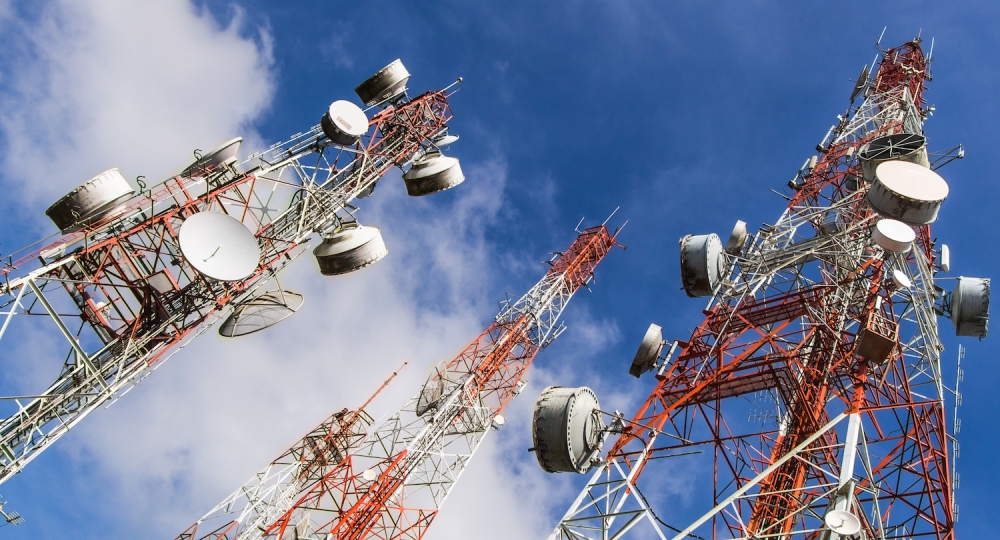By Martin Ekpeke
Nigeria’s economy is showing signs of strengthening, with the National Bureau of Statistics (NBS) reporting a 3.13% real GDP growth in the first quarter of 2025. This marks an improvement from the 2.27% recorded in Q1 2024, signaling a more robust economic landscape that impacts the daily lives of Nigerians across all sectors.
While the services sector led the overall charge, the Information and Communication Technology (ICT) sector emerged as a standout performer, demonstrating significant growth and contributing substantially to the nation’s economic progress.
ICT’s remarkable ascent
The ICT sector, encompassing Telecommunications, Publishing, Motion Picture, and Broadcasting, experienced a phenomenal surge in Q1 2025. It recorded a 31.63% nominal growth rate, a massive leap from the 3.40% seen in Q1 2024. This growth translated into a 10.29% contribution to Nigeria’s nominal GDP, up from 9.25% in the previous year. In real terms, the sector expanded by 7.40%, outpacing its 2024 rate by 3.36%, and accounted for a substantial 10.59% of real GDP, compared to 10.17% in Q1 2024.
This boom in ICT signifies promising developments for Nigerians. It suggests an increase in job opportunities within the tech and media industries, enhanced connectivity for businesses, and greater digital access for citizens. This widespread digital integration has the potential to lower communication costs and foster a vibrant entrepreneurial environment. However, a slight -8.86% quarter-on-quarter real growth dip highlights the need for continued monitoring to ensure the sector’s sustained stability and economic impact.
Mixed fortunes across other key sectors
While ICT shone, other crucial sectors presented a mixed bag. The Oil sector, contributing 3.97% to real GDP, saw a modest growth of 1.87%, a decrease from 4.71% in Q1 2024. Despite increased oil production at 1.62 million barrels per day, up from 1.54 million in Q4 2024, its lower contribution compared to the previous year underscores Nigeria’s need to diversify its economy to safeguard jobs and revenue.
The Non-Oil sector, particularly Agriculture (23.33% of real GDP), experienced modest growth at 0.07%. Crop production, which makes up 64.57% of this sector, is vital for rural livelihoods. However, its lower contribution compared to Q1 and Q4 2024 indicates a slowdown, which directly impacts farmers’ incomes and can lead to higher food prices in markets.
Manufacturing, contributing 9.62% to GDP, grew by 1.69%, suggesting some growth in factory jobs, though not yet enough to significantly transform urban economies.
Nominal growth amidst inflationary pressures
Nigeria’s nominal GDP reached a staggering ₦94 trillion in Q1 2025, an 18.30% increase from ₦79.5 trillion in Q1 2024. However, this gain is somewhat tempered by inflation. For everyday Nigerians, this translates to higher costs for essential goods, from food staples to fuel, unless their wages keep pace. Sectors like Accommodation (60.33% nominal growth) and Human Health (51.13%) also showed significant nominal growth, indicating burgeoning service job opportunities but also reflecting the rising cost of services.
Understanding the numbers: nominal vs. real GDP
For clarity, the NBS differentiates between Nominal GDP and Real GDP. Nominal GDP accounts for the total value of goods and services produced at current market prices, without adjusting for inflation. Think of it as simply counting all the money made, regardless of what it can buy.
Real GDP, on the other hand, provides a more accurate picture of economic growth by adjusting for inflation. It measures the total value of goods and services at constant prices, allowing for a true comparison of output over time. This helps to understand if the economy is truly producing more or if the increase in nominal GDP is merely due to rising prices. Nigeria’s 3.13% real GDP growth indicates genuine economic expansion beyond just inflationary pressures.


